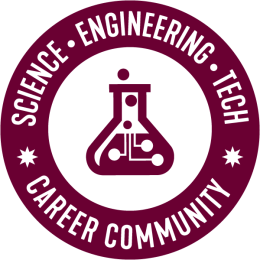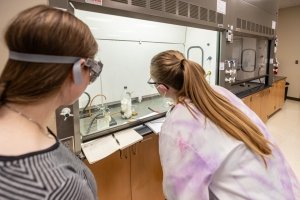
Physics
The physics major explores everything from sub-atomic particles to cosmic origins using mathematics to uncover and apply the fundamental laws of nature.
Overview
As a physics major, you'll sharpen your ability to analyze, synthesize, and reason. You'll not only master the art of planning and conducting experiments but also learn to communicate complex physics concepts with clarity — whether through speech, writing, or mathematics. More than just equations and theories, physics teaches you to think critically, tackle challenges with creativity and logic, and approach the unknown with confidence. These skills are invaluable in nearly every field, from groundbreaking scientific research to industries you may not have even considered. With a physics background, your future isn't just bright—it’s limitless.
Your Major Took You Where?
Physics majors have gone on to a variety of graduate programs and careers.
Employers and Professions
- General Electric
- Lawrence Berkeley National Laboratory
- Lockheed Martin
- Toyota
- Smith-Kettlewell Eye Research Institute (San Franscisco, California)
Postgraduate Study
- UC Berkeley (Industrial Engineering and Operations Research)
- University of Michigan (Climate and Space Science Engineering)
- University of Rochester (Physics and Astronomy)
- Vanderbilt University ((Mechanical Engineering)
- Duke University (Civil and Environmental Engineering)
Curriculum
In the Physics Program at Centre, introductory courses include classroom demos, lab exercises, and out-of-class discussions between students and faculty. The first two years of the program will include intro physics, plus courses in calculus and differential equations. Upper-level courses include advanced mechanics, electronics, magnetism and electricity, optics, quantum mechanics, and thermal physics.









